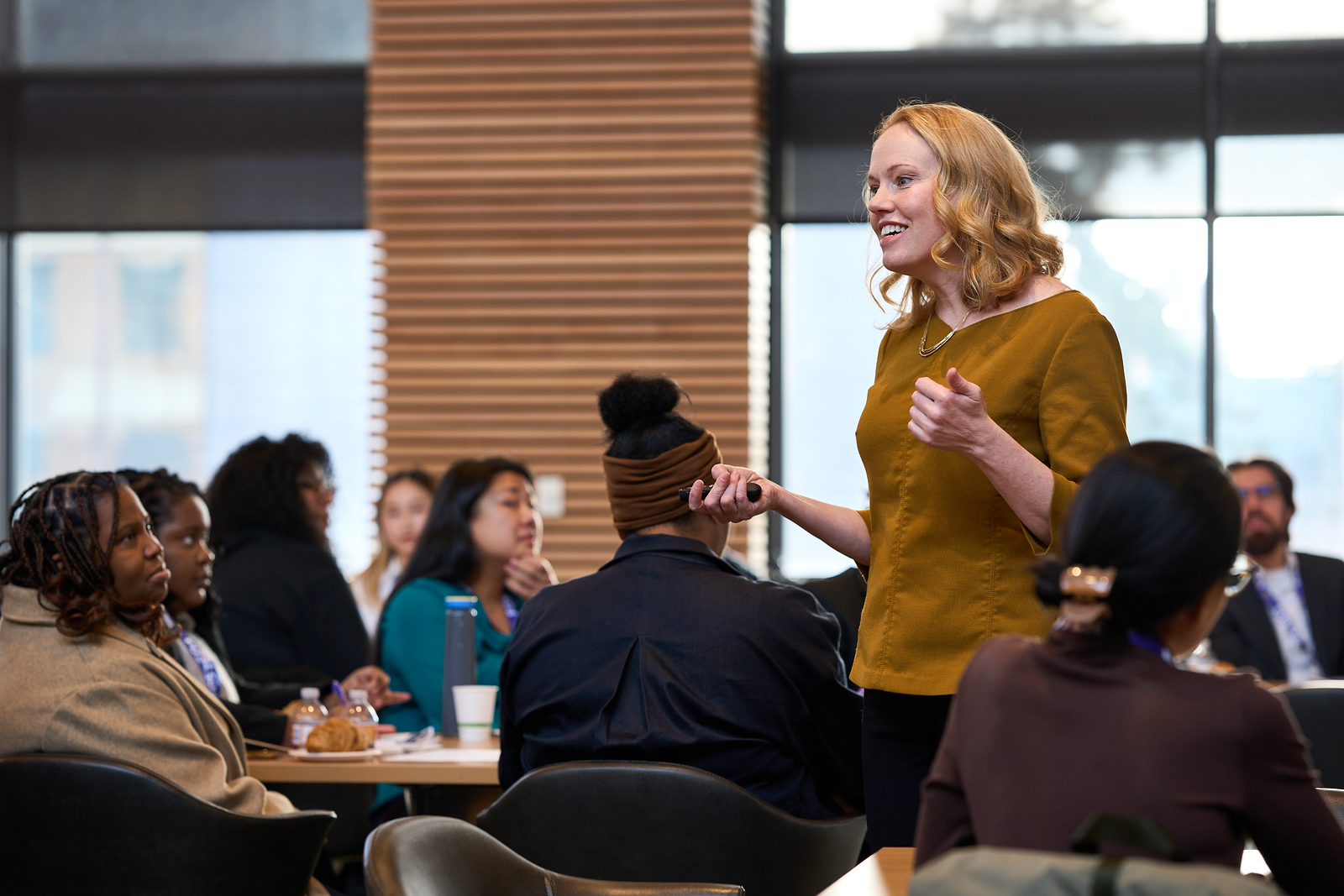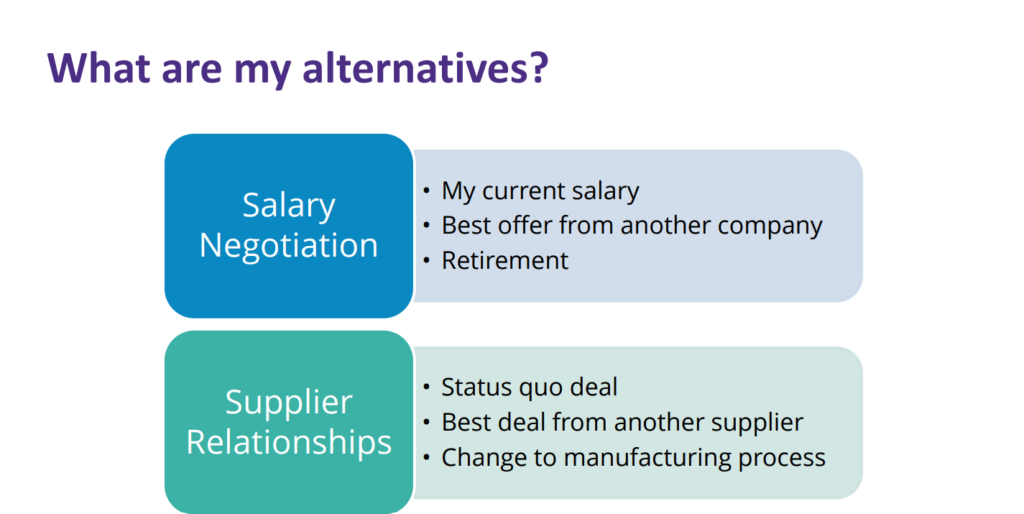
Make Negotiating Work for You
Foster Professor Elizabeth Umphress shares best practices to make negotiating a win-win
University of Washington Foster School of Business Professor Elizabeth Umphress teaches a negotiation class that can help improve your relationships, your finances, and make buying anything from a house to a scarf much easier.
“Negotiations are the process where two or more parties agree on how to allocate scarce resources. And if we use research-based strategies, we’re more likely to get the outcomes that we want,” she explained to a group of prospective students at a recent Fostering MBA Access event.
Just as importantly, Umphress clarified what negotiation is not. It is not haggling, which is transaction-based rather than relationship-based. It is not greedy, as the best negotiations have both sides feeling positive about the outcome. It is not something to be afraid of or intimidated by. With the strategies she teaches, negotiation can be effective and rewarding.
Establish a “BATNA”
According to Umphress, effective negotiations begin with preparation. Before entering any significant negotiation, such as a salary negotiation or supplier contract, you should establish a Best Alternative to a Negotiated Agreement (“BATNA”), or what you will do if you can’t reach a negotiated outcome. In different scenarios, this could mean maintaining the status quo, severing an existing partnership, or selecting an alternate vendor. She advised that when negotiating, you should not explicitly state your BATNA, even though it might be tempting as a means of trying to get the upper hand.
With the BATNA determined, the next step is determining your Reservation Point, which is the point at which you resort to your BATNA. The most important part of your preparation is your target, or your goal in the negotiation. People tend to negotiate with themselves before the negotiation and set their target too low. Instead, Umphress advises setting their target as difficult as possible. Difficult targets help anchor you in the negotiation and result in better outcomes.

Umphress emphasized the importance of respectful conversation. “Human beings tend to reciprocate,” she said. “If I treat you with respect and dignity, you’ll do the same. So, if I highlight all the negatives about your product or service, what will you do to me? And then we start a negative spiral.”
Instead, Umphress suggested building rapport and finding commonality. She noted that understanding the cultural context is essential. Some scenarios might call for lengthy discussions about anything other than the matter at hand, while others might be pressed for time and want to get down to business. In either case, people want to do business and provide more favorable terms to people they like. Ideally, both parties leave the negotiation feeling good about the outcome.
“Negotiating is all about understanding and aligning perspectives,” she says. “It’s not about winning or losing.”
Umphress illustrated her material with examples from her own life, including a scenario where she worked under an unprofessional and condescending manager.
Negotiation as a Tool for Social Justice
She views negotiation as an opportunity for people from traditionally underrepresented communities to achieve greater equity. However, she also emphasized that leaders should be doing the work to ensure that outcomes are equitable across their organizations and should not expect or wait for employees to point out inequities via negotiating. She is currently working on an article providing on strategies for leaders to help ensure that outcomes are fairly distributed.
“If you are from a traditionally marginalized group, you shouldn’t have to negotiate for the same outcomes as someone else,” she said. “But because of bias and discrimination, we see people from different backgrounds not achieving what they should without (doing so). I happily help people negotiate to achieve equitable outcomes, but I don’t think it should be an employee’s obligation to do so. Instead, it is the duty of leaders to closely scrutinize outcomes across the organization to ensure equity.”
While Umphress is an expert in negotiations, she knows many people approach this topic with trepidation and that the word itself can have negative connotations.
So, one of her most memorable tips is one of the simplest. “Never use the word ‘negotiation’ in a negotiation,” she says. “Instead, refer to a discussion or a conversation.”
